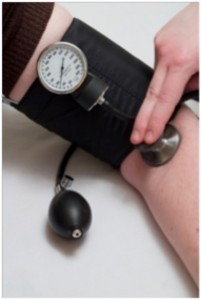Our response to stress can really wreak havoc in our lives, but there seems to be no real cycle of response to stress. Our work is stressful, our relationships can be stressful, and, when it comes down to it, thoughts of the effects of stress can be stressful. Fortunately, there are proactive measures we can take against stress, and more importantly, the way we handle it.
What is stress?
Stress is in essence our minds response to a perceived threat that manifests itself in both the body and the brain. What stress does, to a great extent, is to prepare us to deal with the threats of a hostile world. The increased blood sugar, heart rate and adrenaline were a boon to our ancestors, who needed this extra boost to chase down the evening dinner, or in some cases, flee from the evening dinner. Stress responses provided the needed increase in useful chemicals to help early man cope with the added needs of his body, and he took great advantage of this. If he didn’t, we wouldn’t be here today. The problem is, those very same responses are used to confront situations in our present day lives that don’t warrant them. We very rarely need the surge of energy our ancestors did, but since the responses are hardwired into our systems, we get the same rush of blood and adrenaline from a traffic jam that was once used to fight for survival. The problem lies in the fact that we don’t get to act on the stimulus the way our ancestors did; therefore, we have no way to use up all the excess chemicals that are by products of stress. Cortisol, for example is a hormone released along with adrenaline, which though it may have short term benefits (such as providing essential bursts of energy during critical periods), may have detrimental long term effects on our health. Evidence shows that extended exposure to cortisol weakens bones, causes nerve cells in the brain to degenerate, and compromises the immune system.
How to deal with stress
Since stress comes initially from our thoughts, the way to deal with it may be to change the way we view the annoyances in our lives. As we can see all around us, the same things that can cause one person a great deal of stress may not even faze another. Personality types come into play, but it is possible to keep your blood pressure at acceptable levels even if you are a type A personality (someone who is more forceful and prone to stress than the more serene type B personality). The solution may be in the way you conduct your life and the importance you put on your expectations. Perhaps the best thing you can do to avoid becoming overwhelmed with your day-to-day existence is to gain a bit of perspective via an understanding of your expectations, the reality of your life and where the two meet. It is possible to remove yourself from very stressful chronic situations (such as an unfulfilling job or relationship), though you may have to make some adjustments concerning what your priorities are. If a stress-free existence is high on your list, perhaps a job on Wall Street is not for you. You must realise that you need not be trapped by toxic emotions, and that you can, through a few lifestyle changes, greatly reduce the stress in your life.
Exercise believe it or not, is a great way to reduce stress. Primarily, it gives your body an outlet for your pent-up emotions, letting you blow off steam in a safe, productive way. Secondly, it lowers your resting heart rate, so that when stress hits when you are outside of the gym, you will be better able to relax.
A massage is a great way to detangle. Schedule one whenever you feel overwhelmed.
Simple quiet meditation may also help. It takes practice, though, do don’t let your lack of concentration stress you out even more. Simply sit and visualise a place of serenity. Listening to a CD of soothing sounds may also enhance your experience.
When you’re stressed, instead of seething, distract yourself with a movie, a walk in the park or anything else that will remove you from the stressor.
Debbie Greene
Irish Haemophilia Society


